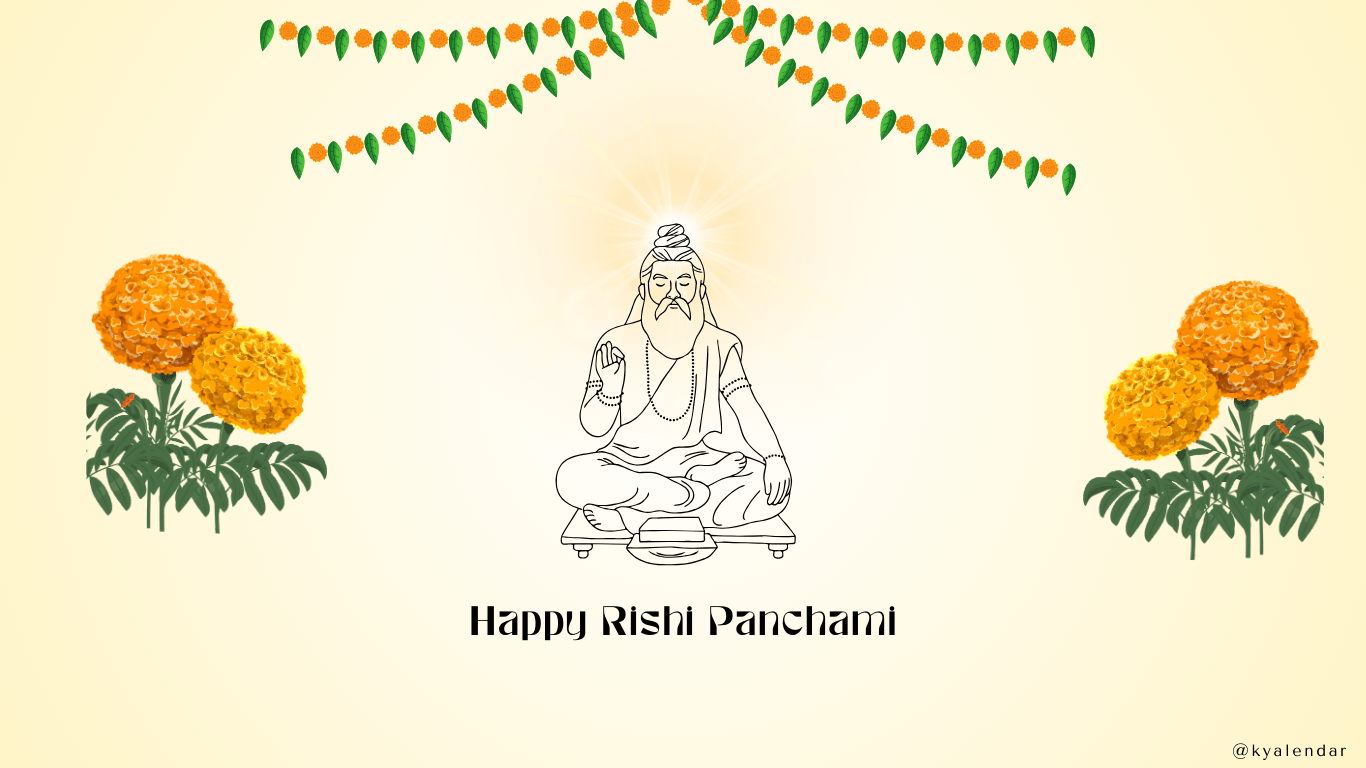
- This event has passed.
Rishi Panchami
September 8

Rishi Panchami is an important Hindu festival in Nepal that falls on the fifth day of the bright half (Shukla Paksha) of the lunar month of Bhadra (August/September). This sacred day is dedicated to paying homage to the ancient Rishis, or sages, who are believed to have imparted wisdom and knowledge to humankind. Celebrated primarily by women in Nepal, Rishi Panchami holds great religious and cultural significance, as it symbolizes purification and respect for the sanctity of life, nature, and ancient traditions.
Mythological Significance
Rishi Panchami is linked to the worship of the Sapta Rishis—the seven great sages revered in Hindu tradition. These sages, often identified as Kashyapa, Atri, Bharadwaja, Vishwamitra, Gautama, Jamadagni, and Vashishta, are believed to guide spiritual seekers on the path of righteousness and wisdom.
According to Hindu mythology, Rishi Panchami is a day for women to atone for any sins committed unknowingly during their menstrual periods. In ancient times, there were strict rules about cleanliness and purity during menstruation, and this day provides a way for women to purify themselves and seek forgiveness for any transgressions of these traditional rules.
Rituals and Observances
The primary participants of Rishi Panchami are women, who observe the day with strict fasting and rituals aimed at physical and spiritual purification. The observances often include:
1. Morning Bath in Holy Rivers or Ponds: The day typically begins with women taking a ritual bath in a holy river or pond to cleanse their bodies and souls. In some places, specific plants such as the Datiwan plant are used during the bath as part of the purification process.
2. Worship of the Sapta Rishis: Women then offer prayers to the Sapta Rishis, seeking their blessings and forgiveness for any sins committed unknowingly. They present offerings such as rice, flowers, fruits, and sacred threads during the worship.
3. Fasting: A strict fast is observed on Rishi Panchami, during which women avoid certain types of food, particularly grains. The fasting symbolizes self-discipline and is believed to cleanse the body of impurities.
4. Special Rituals for Married and Unmarried Women: Married women may also pray for the well-being and longevity of their husbands, while unmarried women may seek blessings for a happy and prosperous future.
Cultural Importance in Nepal
In Nepal, Rishi Panchami is a day of deep respect for tradition, purity, and the natural elements. The rituals are often carried out in households or at local temples, with women coming together in small groups to perform the ceremonies. It is a day that highlights the importance of women in maintaining the spiritual balance within their families and communities.
For many Nepali women, Rishi Panchami is more than just a religious observance; it is a reminder of their role in upholding societal values and the deep connection between human life and the natural world. The use of traditional herbs, the reverence for the holy rivers, and the prayers offered to the Rishis reflect the harmonious relationship between people and nature that is central to Hindu belief.
Environmental and Spiritual Connection
Rishi Panchami also has an underlying environmental significance. By bathing in natural water sources, using plants for purification, and paying respect to sages who are closely associated with nature, the festival reflects a deep reverence for the Earth and its elements. It serves as a reminder of the importance of respecting the environment and living in harmony with the natural world.
Conclusion
Rishi Panchami is a celebration that blends spirituality, environmental respect, and cultural tradition. For Nepali women, it is a day to honour ancient sages, purify the body and soul, and reaffirm their connection with nature. The festival may be rooted in ancient traditions, but its values of respect, purity, and reverence for life remain timeless.